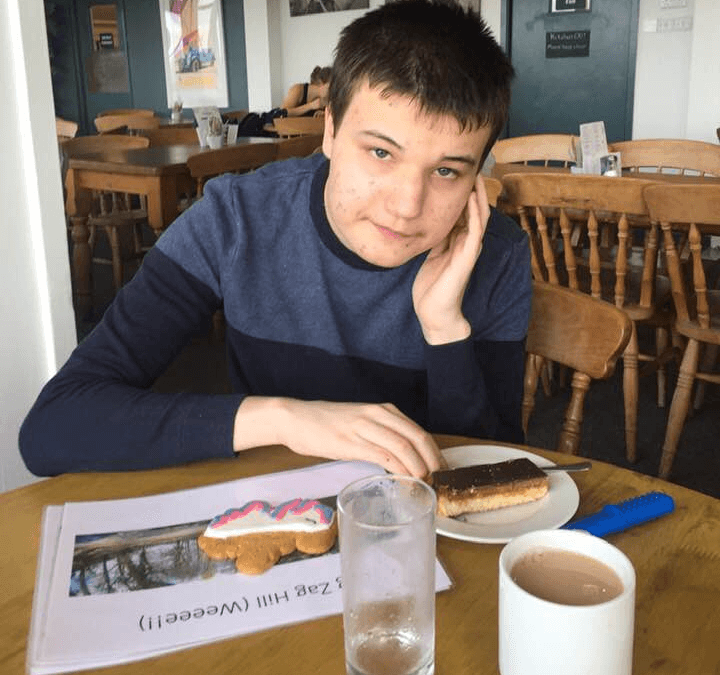Watching the horror of London’s Grenfell Tower fire on television, I was brought back to September 11, 2001. I was living in New York City when 9/11 happened. I had just dropped off my seven-year-old daughter, Molly, at school, and was walking back home, crossing Fifth Avenue. I witnessed a totally bizarre phenomenon. I saw approximately 50 people on the street who were all doing the same thing: they were standing stark-still with their bodies all facing south, and their heads craned upward, looking into the sky. The first plane had struck
As a psychoanalyst, and as a concerned mother, I thought deeply about how to communicate with my daughter on her own perceptions, thoughts and feelings about what was unfolding around her. I learned some good lessons that next week (and beyond) about what to say and what to not say about unexpected tragedy.
Mol understood something had happened. But of course, she did not understand WHAT had happened, nor the meaning of what had happened.
The first important decision I made was to not have TV or radio on within her hearing or viewing ability at all for the first week. That decision was difficult for me. I myself wanted to know everything that was going on, every detail to try to make some sense of how the world had suddenly changed. I waited until Mol went to bed before I indulged in my need for information. I made this decision because I understood that children do not have the filters in place that adults have for selecting information. As adults, we have the mature privilege of choosing what we pay attention to. This gift of evolution allows us to both focus and to be distracted; to pay attention and to NOT pay attention. But for children, information streams into the senses sometimes as though an avalanche is happening; or, as though they were at a rock band: there’s often no escape for them, even though the information is overwhelming to their still-developing sensory/mental systems.
Of course, children talk to each other. They talk in fragmented ways, without fully understanding the full consequences of meaning of events. So, the likelihood is: they WILL learn something about the event unfolding, even if your initial impulse is to keep them blissfully unaware for a time. Their awareness is not always under your complete control.
After hearing about the collapse of the buildings from another child at the playground, my daughter said about the World Trade Center: “I’m not too upset because it wasn’t my favourite building. My favourite building is the Empire State Building.” Such is what a seven-year-old mind is capable of understanding. And this very shallow understanding needs to be respected. Deep understanding evolves slowly in the human mind. It involves many brain/mind structures that aren’t yet in full bloom, and cannot be rushed into development without a problematic kick-back.
It is important in these difficult instances to not lead (as you are used to doing as a parent), but to follow your child. You need to stay in an up-to-the-minute awareness of what your child is processing. This means you sometimes need to ask more questions than answer. You need to know what your child knows, to help him or her talk about what had filtered through to awareness. But you also need to know what your child doesn’t know, and even more importantly, what your child doesn’t WANT to know. Children have the right to NOT KNOW. And, this desire to ward off disturbing information is absolutely essential to their wellbeing. We cannot force-feed our children facts nor feelings about tragedy. I like to use the phrase: KNOWING NO. KNOW where NO needs to be placed. Honor the value of NO.
And equally the value of YES. Respond with care and attention to your child’s interest in knowing. Leaving your child in the dark when there is real interest in knowing is a mistake that will lead your child to not trust your honesty.
Think of providing information as like feeding your child. The child, not you, decides when he or she is full. The sensitive, caring parent respects the intelligence of the child to know when to open his/her mouth to receive food/information and when to close his/her mouth to shut out food/information. The child’s innate intelligence has to carry the day. To deal smartly in these difficult times of tragedy, we, as parents, only need to listen and observe when our child’s mouth is open and when it is closed.
About the Author
Psychoanalyst Dr Jane Goldberg specialises in family and relationships. She has written many books and her most recent – My Mother, My Daughter, My Self – was published by Free Association Books at the end of 2016. Jane founded New York’s oldest wellness centre, La Casa Spa, and is a regular media commentator in the UK and US.








